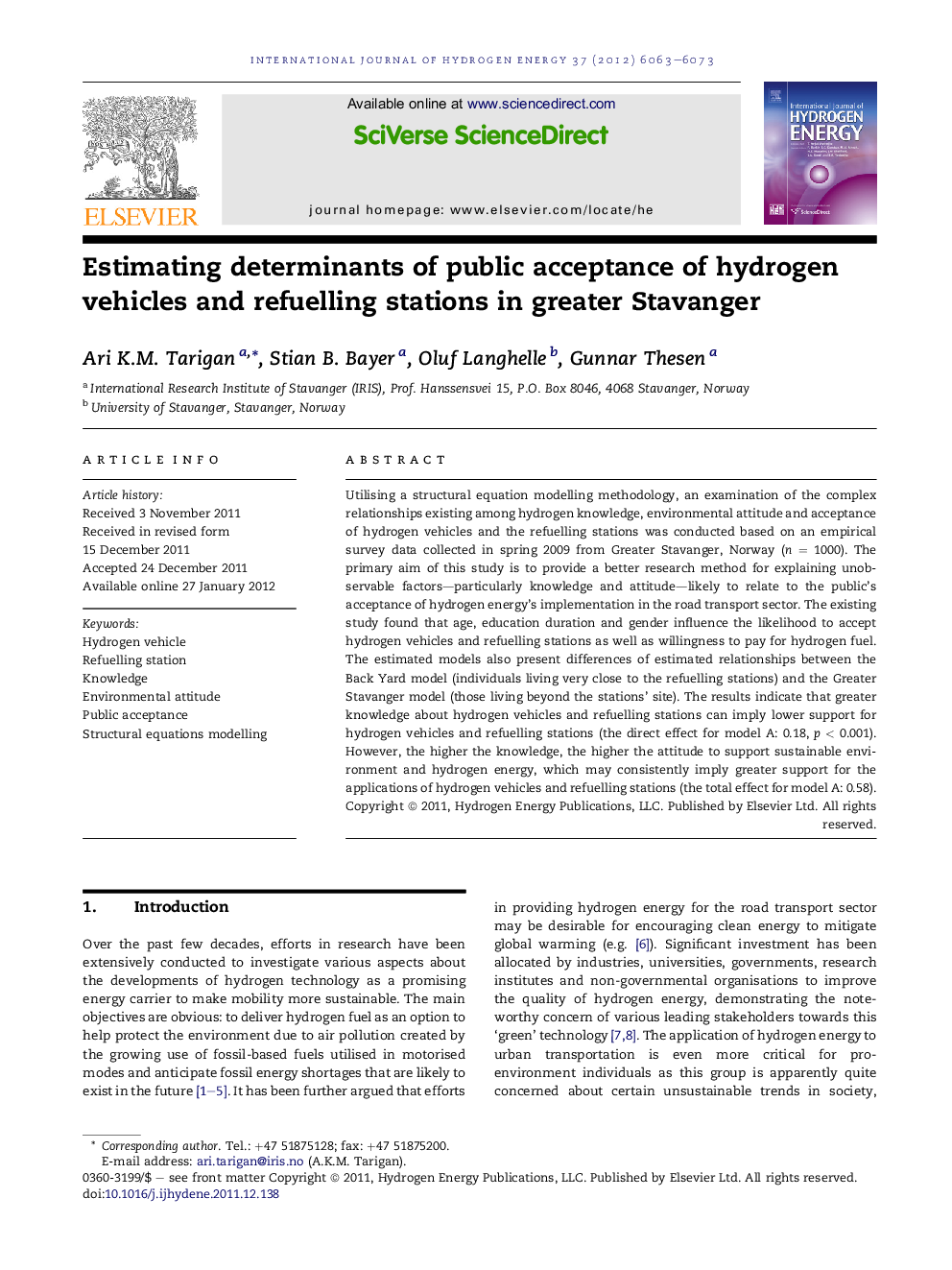| Article ID | Journal | Published Year | Pages | File Type |
|---|---|---|---|---|
| 1276898 | International Journal of Hydrogen Energy | 2012 | 11 Pages |
Utilising a structural equation modelling methodology, an examination of the complex relationships existing among hydrogen knowledge, environmental attitude and acceptance of hydrogen vehicles and the refuelling stations was conducted based on an empirical survey data collected in spring 2009 from Greater Stavanger, Norway (n = 1000). The primary aim of this study is to provide a better research method for explaining unobservable factors—particularly knowledge and attitude—likely to relate to the public’s acceptance of hydrogen energy’s implementation in the road transport sector. The existing study found that age, education duration and gender influence the likelihood to accept hydrogen vehicles and refuelling stations as well as willingness to pay for hydrogen fuel. The estimated models also present differences of estimated relationships between the Back Yard model (individuals living very close to the refuelling stations) and the Greater Stavanger model (those living beyond the stations’ site). The results indicate that greater knowledge about hydrogen vehicles and refuelling stations can imply lower support for hydrogen vehicles and refuelling stations (the direct effect for model A: 0.18, p < 0.001). However, the higher the knowledge, the higher the attitude to support sustainable environment and hydrogen energy, which may consistently imply greater support for the applications of hydrogen vehicles and refuelling stations (the total effect for model A: 0.58).
► The relationships among knowledge, attitude and hydrogen acceptance are examined. ► A structural equation modelling methodology is used. ► Greater knowledge can imply lower support for hydrogen technology features. ► The higher the knowledge and the attitude may imply greater hydrogen support.
